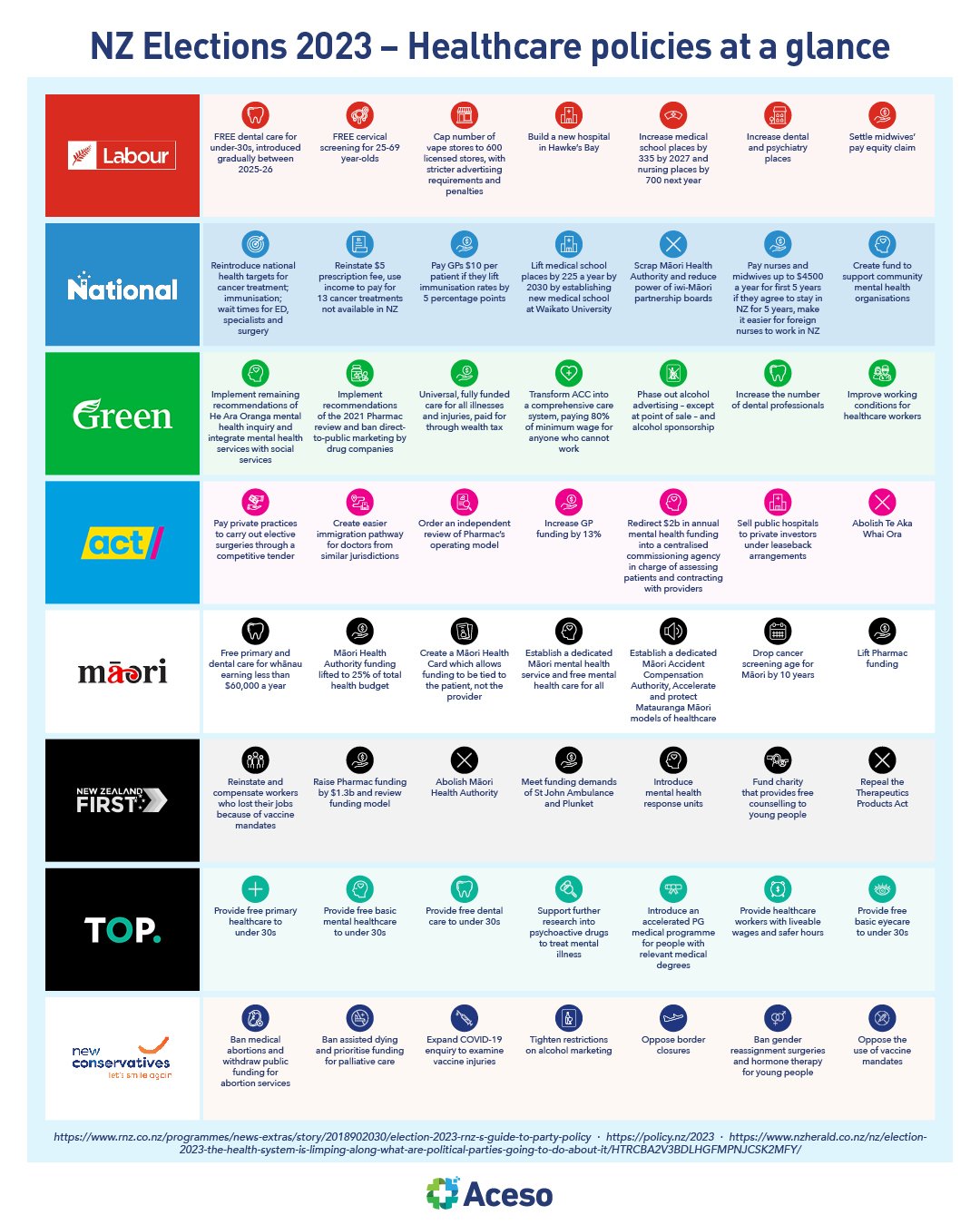NZ Elections 2023 - Healthcare policies at a glance
The 2023 New Zealand general election will be held on 14 October 2023 to determine the composition of the 54th Parliament of New Zealand. A total of 19 registered political parties are contesting the election, with 17 parties submitting a party list. A total of 567 candidates will be contesting the 2023 General Election.
The first general and provincial elections in New Zealand took place in 1853, the year after the British Parliament passed the New Zealand Constitution Act 1852. Women's suffrage was introduced in 1893, with New Zealand being the first modern country to do so.
Almost all general elections between 1853 and 1993 were held under the first-past-the-post voting system. The first election under the mixed-member proportional (MMP) system was held in 1996 following the 1993 electoral referendum
Since the 2020 general election there are 72 electorates, including seven Māori electorates reserved for people of Māori ethnicity or ancestry who choose to place themselves on a separate electoral roll.
Since Parliament began, its leaders had all been men. This changed in the late 1990s, when New Zealand had not one, but two women Prime Ministers. The first woman to lead New Zealand was the National Party’s Dame Jenny Shipley. She held the top job from 1997 (after then Prime Minister Jim Bolger resigned) until the 1999 election. Helen Clark became Prime Minister when her Labour Party won the 1999 election with 39% of the vote. Since being elected in 1981, she had held a number of portfolios, including Conservation, Housing, and Health. She became New Zealand’s first woman deputy Prime Minister in 1989.
Vote responsibly! Our future depends on it.

